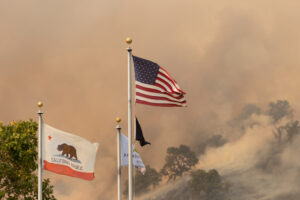Domestic workers, such as caregivers, gardeners, and house cleaners, who are employed by companies in California are now covered by the state’s workplace safety and health laws, the California Division of Occupational Safety and Health (Cal/OSHA) announced July 1.
Changes in state law allow Cal/OSHA to enforce regulations for covered employers in the domestic services industry.
“Domestic workers take on some of the hardest jobs—caring for our loved ones, cleaning our homes, and supporting our daily lives,” Cal/OSHA Chief Debra Lee said in an agency statement. “They deserve the same protections as any other worker. It’s only right that we care for those who care for us.”
Businesses that employ household domestic service workers on a temporary or permanent basis will be treated as employers under California law. Employers must provide a safe workplace, which includes but isn’t limited to:
- Establishing, implementing, and maintaining an effective injury and illness prevention program (IIPP);
- Inspecting the workplace(s) to identify, evaluate, and correct hazards that can hurt workers;
- Making sure employees have, use, and properly maintain safe tools and equipment;
- Providing and paying for personal protective equipment (PPE) when required by law; and
- Immediately reporting serious workplace injuries or fatalities to Cal/OSHA.
Domestic workers have the right to safe and healthy working conditions, as well as training from their employer on workplace hazards. They also have the right to request information from their employer about Cal/OSHA standards, worker injuries and illnesses, and job hazards; request access to their employer’s IIPP; and report hazards or unsafe conditions or file a complaint with Cal/OSHA regarding safety and health violations or any other workplace hazards.
Cal/OSHA noted that homeowners and renters who directly hire workers to perform typical household tasks, such as housecleaning, cooking, caregiving, or routine gardening, aren’t considered employers and may be excluded from Cal/OSHA requirements.
Cal/OSHA urges employers to protect workers from wildfire smoke
On July 2, Cal/OSHA urged employers to take immediate steps to protect workers from exposure to unhealthy air caused by wildfire smoke, as multiple active fires continue to affect air quality across Southern California. The Juniper, Lake, and Wolf fires are producing hazardous smoke in Riverside and San Bernardino counties and may affect surrounding areas downwind.
The fires, among several currently burning across the state, generate hazardous smoke that could impair worker health in affected areas. Cal/OSHA’s Protection from Wildfire Smoke standard requires employers to protect workers from unhealthy air caused by wildfire smoke.
Employers must monitor air quality, adjust work practices, and provide N95 filtering facepiece respirators (FFRs) for voluntary use. Cal/OSHA’s standard also contains training requirements.
Employers must monitor the Air Quality Index (AQI) for particulate matter (PM2.5) before and throughout a work shift. Air quality can be tracked through websites like the U.S. Environmental Protection Agency’s (EPA) AirNow or local air quality management district websites.
When the AQI for PM2.5 exceeds 150, employers must provide respirators to all workers and encourage them to use them. When the AQI for PM2.5 exceeds 500, respirator use is required.

